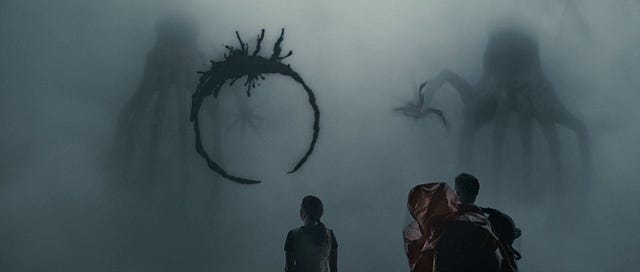Blumenthal, Max. "Killing Gaza 2.0 an interview with Max Blumenthal." Jump Cut #62 (Winter 2023 - 2024) ["On December 14, 2023, Max Blumenthal, author of several books on Palestine/Israel and the editor of Grayzone news, who with Dan Cohen made the film Killing Gaza about the 2014 Israeli attacks on Gaza, spoke at the Community Church of Boston about the current situation. The Jump Cut editors have recast his talk as an interview."]
Hedges, Inez. "Introduction: Seeing Gaza Differently." Jump Cut #62 (Winter 2023-2024) ["The air, land, and sea blockade of Gaza is now in its 16th year. Children that were 5 and 6 years old when the blockade started are now in their 20s and trying to plan their professional futures within the travel limits set by Israel and Egypt. According to OCHA (the UN’s Office for the Coordination of Humanitarian Affairs), even before the outbreak of new hostilities between Hamas and Israel, of the more than 2.3 million people living in Gaza, 26 % of the workforce was unemployed, including 38% of youth; 75% of the population required food aid; over 90 % of the water was undrinkable and had to be purified. Residents were subjected to rolling electricity blackouts. Since the start of the blockade, Gaza has endured four major bombing attacks by Israel, in 2009, 2014, 2021 and just now in 2023. Despite all this, Gaza has refused to be reduced to the world’s image of suffering and disaster. Women worked to support their families (see the UNRWA video by Motaz Azaiza, https://www.instagram.com/p/CrMBXJLglOW/). Talented musicians took up the violin. Families enjoyed time at the beach. Young people learned computer skills—there is no blockade in cyberspace. Children played hide-and-seek, soccer, hopscotch—and sometimes made sorties to throw stones at soldiers manning the border crossings."]
Huh, Minj. "Embodied allegory in Sorry to Bother You: art, performance and movement in neoliberal capitalist ruins." Jump Cut #62 (Winter 2023 - 2024) ["In this paper, I examine how Riley brings art and politics together in Sorry to Bother You, specifically through embodied allegory. Such a deployment of allegory in recovering the bodies of the marginalized—in this case racially- and gender-marked laborers—resonates with how Annabel Patterson in Fables of Power (1991) shifts our attention towards Aesop as a “philosopher of materialism and the body” (38), an essential facet of Aesop which has long been eclipsed by “the legend of the witty Aethiopian slave” (34). To be sure, many episodes in Aesopian fables function as a critique of unequal power relations. The political message of these fables grasps wage laborers’ attention to this day when the urge to liberate oneself from the social hierarchy is still founded in capitalism, whose internal mechanism has an uneasy proximity to enslaved labor in pre-capitalist societies. I propose that Sorry to Bother You is a viable fable for this day and age, alerting us to the possible subversion of official values and dominant culture, and at the same time, encouraging us to attend to another device of allegory, which is the historical situatedness of its current author."]
Jasechko, Scott, et al. "Rapid groundwater decline and some cases of recovery in aquifers globally." Nature (January 2024) ["Groundwater resources are vital to ecosystems and livelihoods. Excessive groundwater withdrawals can cause groundwater levels to decline, resulting in seawater intrusion, land subsidence, streamflow depletion and wells running dry. However, the global pace and prevalence of local groundwater declines are poorly constrained, because in situ groundwater levels have not been synthesized at the global scale. Here we analyse in situ groundwater-level trends for 170,000 monitoring wells and 1,693 aquifer systems in countries that encompass approximately 75% of global groundwater withdrawals. We show that rapid groundwater-level declines (>0.5 m year−1) are widespread in the twenty-first century, especially in dry regions with extensive croplands. Critically, we also show that groundwater-level declines have accelerated over the past four decades in 30% of the world’s regional aquifers. This widespread acceleration in groundwater-level deepening highlights an urgent need for more effective measures to address groundwater depletion. Our analysis also reveals specific cases in which depletion trends have reversed following policy changes, managed aquifer recharge and surface-water diversions, demonstrating the potential for depleted aquifer systems to recover."]
Karlawish, Jason and Aaron Kesselheim. "A Disease of Humanity: The Problem of Alzheimer's." Open Source (June 24, 2021) ["Alzheimer’s disease, the hushed nightmare version of old age, is on the wrong side of medical news again. The headline shocker this month was that the watchdog Food and Drug Administration had approved an anti-Alzheimer’s drug from the pharma giant Biogen. The treatment called aducanumab has no record of success and a first-round price-tag per patient of $55,000 per year. Our keynote guest Aaron Kesselheim has the inside story of the FDA’s retreat from regulation. Then Jason Karlawish will join us from the front line of Alzheimer’s treatment. The riddle this hour is what makes the last stage of human life so demanding and so difficult." Jason Karlawish's new book is The Problem of Alzheimer's: How Science, Culture, and Politics Turned a Rare Disease into a Crisis and What We Can Do About It."]
Lawrence, Novotny. "White mansions, black bodies: Get Out and the New Age slave plantation." Jump Cut #62 (Winter 2023/2024) ["This article is divided into three sections, the first of which discusses Hollywood films’ presentations of slave plantations as inspired by the Lost Cause Tradition, demonstrating the ways in which mainstream cinema has depicted, distorted, and policed the “right ways” to exist as Black. The second section focuses on independent cinema’s presentation of what I refer to as the Panoptic plantation, a horrific construct that reveals the depths of slave states’ surveillance and control of Black bodies. The article concludes by detailing how Get Out is endemic of what I assert is an original and frightening construct of slavery and plantations that functions as a harrowing metaphor for contemporary racism and the ways in which it polices and haunts Black bodies."]
Like Stories of Old. "The Problem of Other Minds – How Cinema Explores Consciousness." (Posted on Youtube: May 31, 2018) ["How have films engaged the problem of other minds? In this video essay, I discuss cinematic explorations into consciousness in the context of the cognitive revolution that has challenged many of the basic assumptions about what was for a long time believed to be a uniquely human trait." Uses Frans de Waal's book Are We Smart Enough to Know How Smart Animals Are?: "Hailed as a classic, Are We Smart Enough to Know How Smart Animals Are? explores the oddities and complexities of animal cognition--in crows, dolphins, parrots, sheep, wasps, bats, chimpanzees, and bonobos--to reveal how smart animals really are, and how we've underestimated their abilities for too long. Did you know that octopuses use coconut shells as tools, that elephants classify humans by gender and language, and that there is a young male chimpanzee at Kyoto University whose flash memory puts that of humans to shame? Fascinating, entertaining, and deeply informed, de Waal's landmark work will convince you to rethink everything you thought you knew about animal--and human--intelligence."]
McGrath, Callum. "Looking to the other side: Dismantlement and reimposition of borders in Sicario and The Three Burials of Melquiades Estrada." Senses of Cinema #108 (January 2024) ["Two films that engage in ideas of the permeability of the US-Mexico border are Sicario (Denis Villeneuve, 2015) and The Three Burials of Melquiades Estrada (Tommy Lee Jones, 2005). This article will explore how these films either reimpose or dismantle the border. To construct these arguments, an analysis of cinematic techniques will be undertaken for each film, with a focus on mise-en-scène. It will be argued that the negative depiction of Mexico in Sicario reimposes border ideology. Subsequently, the article will assert that The Three Burials of Melquiades Estrada instead dismantles the border division. In both texts, however, there are challenges and nuances to these arguments, as will be explored. These include border permeability in instances that are beneficial to the hegemony of the US in Sicario, and some aspects of Mexico’s romanticised portrayal that reinforce a divide in The Three Burials of Melquiades Estrada."]
Milton, Chris.
"Rosemary's Baby: The World as Coven." Bright Lights Film Journal (July 27, 2023) ["Rosemary’s Baby has been seen as eerily prescient, predictive, but in fact it looked back; Polanski already knew evil and horror, and specifically the horror of the giant covens of Nazi Germany and communist Eastern Europe. For just as the “banality of evil” can be reversed to the “evil of banality,” so “collective madness” can be reversed to the “madness of the collective,” and this is the true theme of this film. Rosemary’s Baby is about the glamour of evil, misogyny, the absolute unknowability of others, however intimate, and their potential for betrayal; but above all it is about the evil of ideologies, conformism, the inherent evil of joining in."]
Pelan, Tim. "Trickle Down Robonomics—The Predatory Capitalism of ‘RoboCop.’" Cinephilia & Beyond (August 21, 2023) ["RoboCop, Paul Verhoeven’s 1987 American debut, was a prescient satire on Reagan-era American values and predatory capitalism, with Omni Consumer Products (OCP) contracted to run the police force in crumbling Old Detroit, whilst ramping up a tank-like robotic enforcement program (ED 209) to militarise the war on crime. This OCP action is in advance of the gentrification of Detroit’s rebirth as “Delta City,” complete with 2 million jobs. But number two executive Dick Jones’ project has a few “glitches” and hungry underling Dick Morton (Miguel Ferrer) has a backup plan—RoboCop, an anonymous cybernetic cop, loyal to the company. All he needs is a “volunteer,” transferring suitable candidates into the worst precinct in town to be declared legally dead—their contracts say they are property of OCP when gunned down on duty. Dick is also in cahoots with sociopathic criminal Clarence Boddicker (Kurtwood Smith) to feast upon the migrant workforce that will be assembled to create the new utopia."]


:format(webp)/cdn.vox-cdn.com/uploads/chorus_image/image/53404039/getoutcover.0.jpg)
